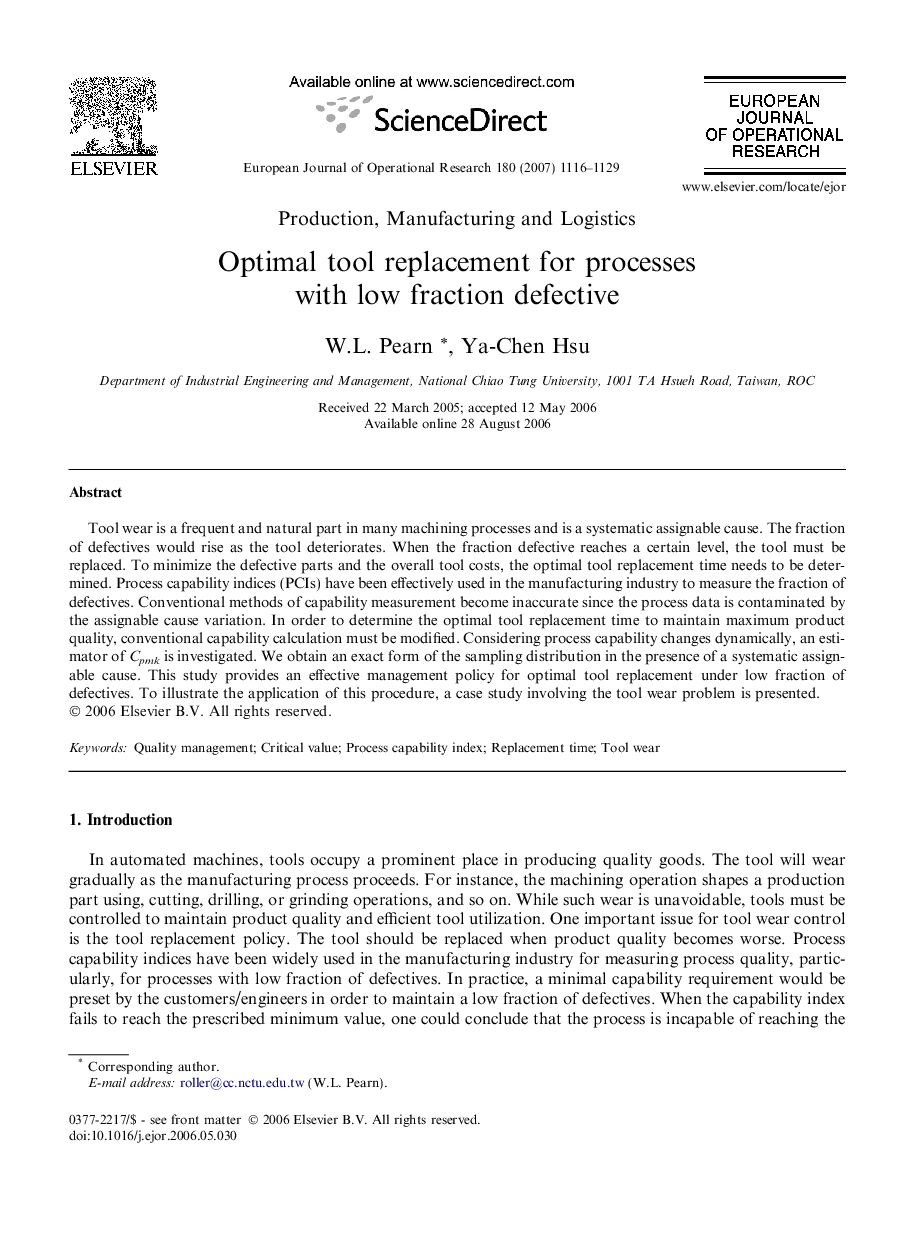| Article ID | Journal | Published Year | Pages | File Type |
|---|---|---|---|---|
| 483086 | European Journal of Operational Research | 2007 | 14 Pages |
Tool wear is a frequent and natural part in many machining processes and is a systematic assignable cause. The fraction of defectives would rise as the tool deteriorates. When the fraction defective reaches a certain level, the tool must be replaced. To minimize the defective parts and the overall tool costs, the optimal tool replacement time needs to be determined. Process capability indices (PCIs) have been effectively used in the manufacturing industry to measure the fraction of defectives. Conventional methods of capability measurement become inaccurate since the process data is contaminated by the assignable cause variation. In order to determine the optimal tool replacement time to maintain maximum product quality, conventional capability calculation must be modified. Considering process capability changes dynamically, an estimator of Cpmk is investigated. We obtain an exact form of the sampling distribution in the presence of a systematic assignable cause. This study provides an effective management policy for optimal tool replacement under low fraction of defectives. To illustrate the application of this procedure, a case study involving the tool wear problem is presented.
